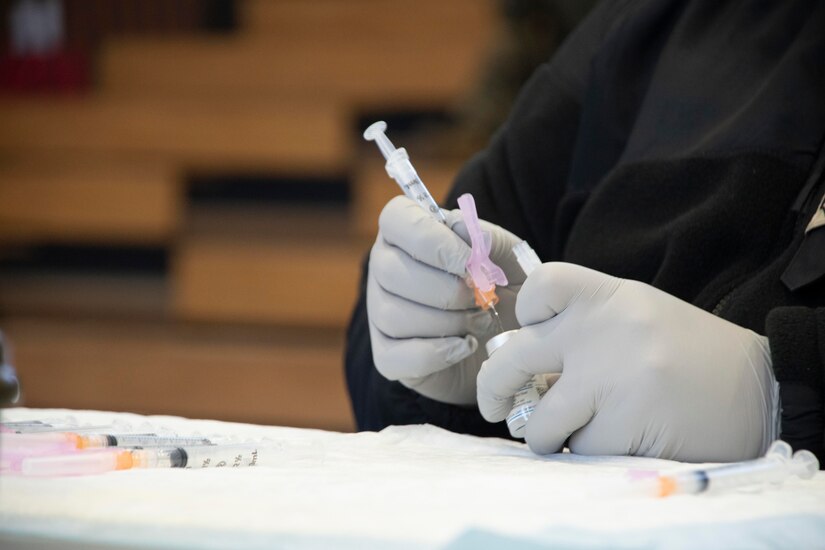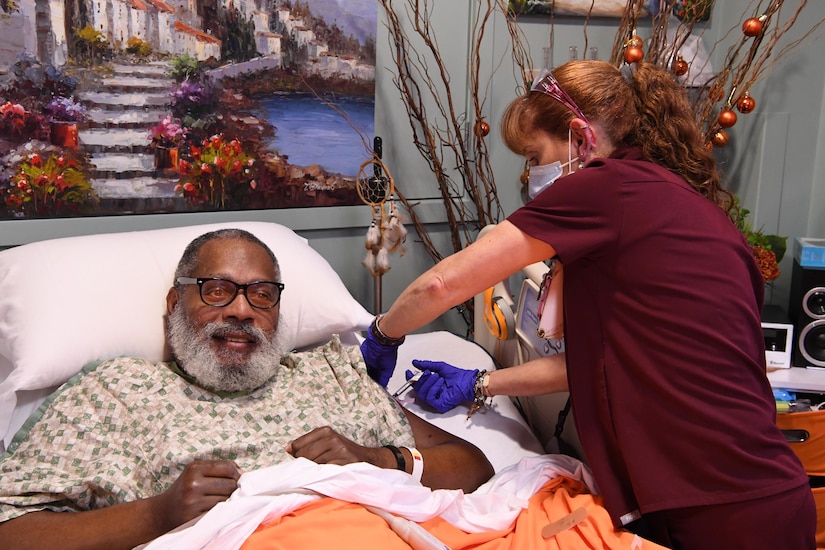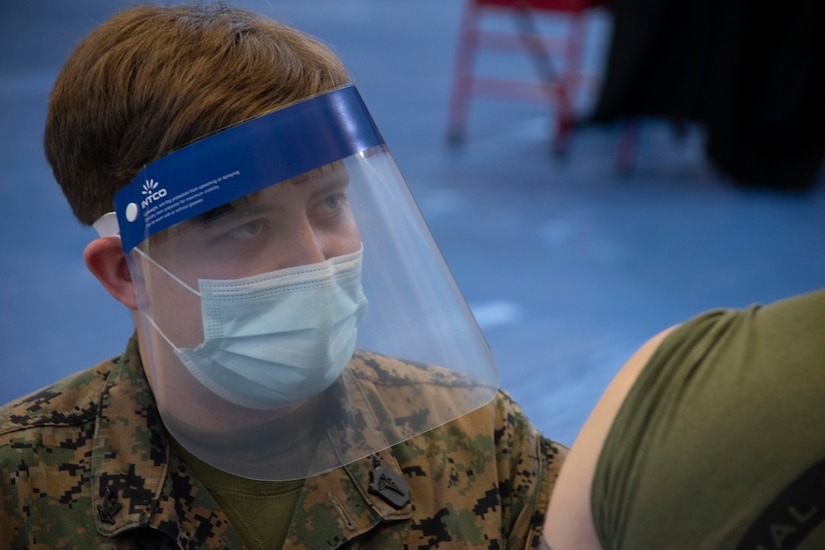March 5, 2021 |
When a vaccine is limited, how do you decide who should get vaccinated first? That was the question Dr. Laura Gilbert, a Master of Public Health graduate student at the Uniformed Services University, faced when a unique opportunity to help a local military retirement community with their COVID-19 immunization plan presented itself.
Gilbert, a Navy lieutenant commander and infectious disease fellow at Walter Reed National Medical Center, Bethesda, Maryland, jumped at the chance to assist. She had previously seen patients from the Knollwood Life Plan Community and enjoyed working with them. The opportunity also involved working with an infectious disease, so it was right up her alley.

Knollwood is nestled in Rock Creek Park in Washington, D.C., about 20 minutes away from the university, and houses uniformed service members and their families. The retirement center reached out to the university leadership to suggest a potential opportunity for a study project, developing their immunization plan.
Gilbert set out to tackle this endeavor. She quickly realized that, initially, there wasn't much guidance on how to prioritize and distribute the recently-developed vaccine among the residents and staff. There was also a limited supply, so it became even more important to prioritize who would get the vaccine first. She consulted her mentor, U.S. Public Health Service Capt. (Dr.) Darrell Singer, an associate professor and director of USU's MPH degree program, and immediately began collaborating with Knollwood's health administration team. Gilbert not only had to consider the residents, but also essential workers who were keeping the center running smoothly, such as housekeeping, food workers, grounds keepers and social workers.
"I took a tour of Knollwood, evaluated the number of residents and staff onsite, reviewed published recommendations and guidelines, assessed clinical trials, considered logistics and expectations, conferred with my advisor, and then outlined my recommendations and compiled a proposed plan on how they could safely and efficiently distribute the COVID-19 vaccine for their residents and staff," Gilbert explained.
Experts have reported it's critical to vaccinate those who regularly work around individuals most at risk for COVID-19.

"I think a lot of what I did was guiding their team," she said. "Knollwood had an idea of how to proceed, but I just helped them navigate the situation. Then, I formulated a document based on what I would recommend for their community."
Before rolling out the vaccine administration plan, Gilbert and the Knollwood team had conversations about how to monitor vaccines and patients, after receiving it.
"I worked with the nurses to help them devise a plan of what was reasonable for their community on vaccination day," she added.
Eventually, all of those efforts culminated with Knollwood's COVID-19 Vaccine Clinic Day. Residents couldn’t wait to roll up their sleeves to get vaccinated.
"Knollwood actually had two clinic days where, with the help from local drug store pharmacy technicians, they were able to offer the Moderna vaccine to almost 600 residents and employees," Gilbert said. "The pharmacy techs had a great setup that was very efficient and very organized. The Knollwood team also did an excellent job of communicating with all the residents and staff, and consent was obtained ahead of time from all participants."

After receiving the vaccine, participants had to wait 15 minutes to make sure they didn't have any adverse reactions. "This is one step closer to regaining a normal life, marveled one Knollwood resident.
Family members of the retirement community residents had a lot of concerns about the vaccine. Gilbert conducted a webinar that addressed their questions and helped increase communication between the staff, residents and family members.
"I liked the format of the webinar," Gilbert said. "It was conducted like a conversation, somewhat akin to a fireside chat."
Gilbert added that there was a general air of hope and excitement during the vaccine clinic.
"Participants knew what to expect, so they were ready," she said.
For Gilbert, this practicum was an incredible experience.
"It was a privilege working with the Knollwood community," Gilbert said. "I'm really grateful to Dr. Singer, my incredibly supportive advisor. He married my interests with my background of infectious diseases, public health and the military. I learned a lot along the way, and I love serving. That's why I became a doctor."








No comments:
Post a Comment